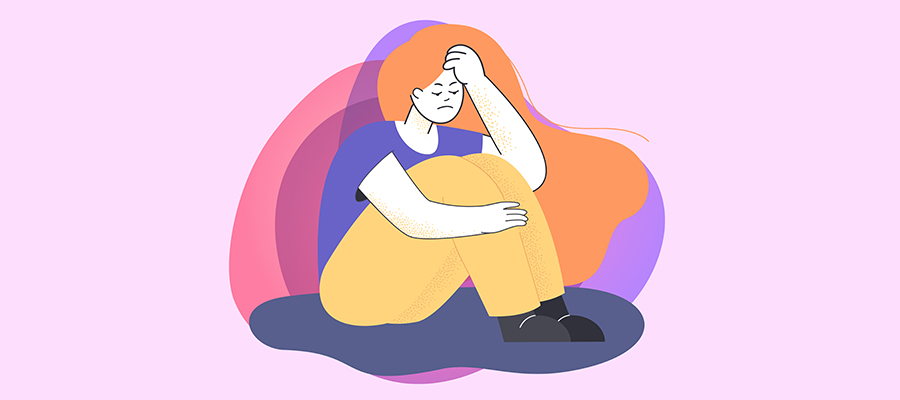Anxiety is an emotional state characterized by feelings of tension, worry, and physical changes such as increased heart rate, rapid breathing, and sweating. While anxiety and fear are often used interchangeably, they are distinct emotional experiences. Anxiety is future-oriented, involving a long-term response to vague, anticipated threats, whereas fear is a short-term, present-oriented reaction to a specific, identifiable danger. People experiencing anxiety may feel nervous, restless, or tense, and often have a sense of impending doom or panic. They may also experience symptoms such as rapid heart rate, hyperventilation, sweating, trembling, fatigue, difficulty concentrating, trouble sleeping, and gastrointestinal issues. Individuals with anxiety may find it difficult to control their worry and may avoid situations or places that trigger their anxiety.
The causes of anxiety are complex and involve a combination of factors, including chemical imbalances in the brain, changes in brain function, genetics, and environmental stressors. Neurotransmitters like norepinephrine, serotonin, dopamine, and gamma-aminobutyric acid (GABA) play key roles in regulating mood and fear responses, and imbalances in these chemicals can contribute to anxiety. The amygdala, a part of the brain responsible for managing fear and anxiety, shows increased activity in people with anxiety disorders, making them more sensitive to anxiety cues. Genetics also play a role, as anxiety disorders tend to run in families, meaning individuals with a family history of anxiety may be at a higher risk. Additionally, environmental factors like chronic stress or trauma can trigger or worsen anxiety disorders by disrupting the balance of neurotransmitters and hormones in the brain.
According to the World Health Organization, around 4% of the global population, or approximately 301 million people, suffer from anxiety disorders, making it the most common mental health condition worldwide. Women are generally more likely than men to experience anxiety disorders, with a ratio of about 2:1. Fortunately, anxiety is a treatable condition, and a combination of pharmacotherapy (medication) and psychotherapy is often effective in managing symptoms. Medications such as selective serotonin reuptake inhibitors (SSRIs), benzodiazepines, and other antidepressants are commonly prescribed to help regulate the brain chemicals involved in anxiety. These medications may help reduce the intensity of anxiety symptoms, although they may take several weeks to show full effects.
Psychotherapy, particularly Cognitive Behavioral Therapy (CBT), is also a highly effective treatment for anxiety. CBT helps individuals identify and challenge negative thought patterns and behaviors that contribute to anxiety, equipping them with coping strategies to manage their worries and fears. Additionally, therapy may help individuals learn relaxation techniques, mindfulness practices, and stress management strategies to reduce anxiety levels. For some people, lifestyle changes such as regular exercise, maintaining a balanced diet, and practicing relaxation exercises like deep breathing or meditation can complement traditional treatments and improve overall well-being.
In conclusion, anxiety is a complex but treatable condition that affects millions of people worldwide. Understanding its causes and symptoms is crucial in recognizing when professional help is needed. By combining medications, therapy, and healthy coping strategies, individuals with anxiety can successfully manage their symptoms and lead fulfilling, balanced lives. If you or someone you know is struggling with anxiety, seeking treatment from a healthcare professional is an important step toward recovery.

